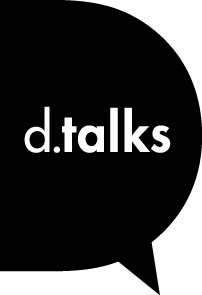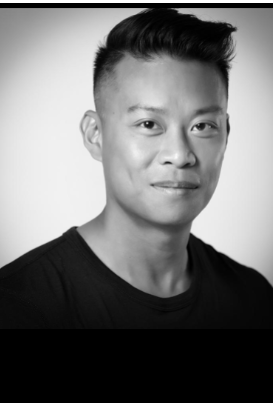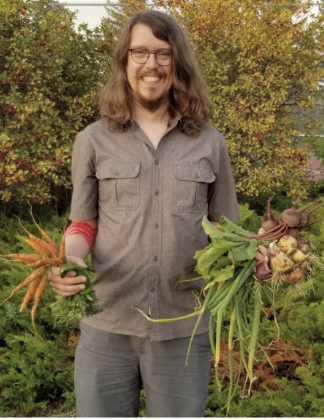May 4, 2023
Author: Jared Tailfeathers Editor: Richard Harrison
Moderator Mark Hopkins interviews our panelists for a Q+A about The Grid.
Image credit: Jesus Martin Ruiz
Break through the grid of power to take an intimate look into how the energy of the country is generated and dispersed, the harm it causes and the hold it has on us.
How does it effect?
Who does it affect?
Who holds the power to shape the world to come, and salvage the world that is?
Where do regular citizens fit?
Where do regular citizens fight?
Can art and creativity hold answers to climate issues?
Can art and culture act as agents of change?
Can those answers produce action?
Can different opinions support collective interaction and inter-community wellness?
These questions, in not so few words, were the basis for the discussion and presentation at the Calgary Central Library that highlighted the active (and activist) work called “The Electromagnetic Field” by Allora and Calzadilla. Like the shavings of metal danced across the plain by the invisible forces that ripple and quake, electrifying the artwork, so were the participants who were present to talk about The Grid. Feelings, too, are the unforeseen waves of knowledge, and the night’s discussion produced a desire to learn more, share those ideas, and act.
Industry and governments have propelled the world into a future both miraculous and disastrous. We gathered here to feel those magnetic waves echo from the industrious past, ride through our rising present, to the nervous quiver of anticipation to the future: can we calm those waves before we drown in their fury?
Tonight, we look to the leaders of climate awareness and cultural adjustment, get to know them and why they think it should be as important to you as it is to them. We step with them into the light of possibility. A collection of bright minds, enthusiastic optimism and concrete solutions to challenge the status quo of the powers-that-are and the powers-that-would-be. Tonight: An invitation for education and an encouragement for collaboration.
Panelists
Maggie Hanna is the President of Common Ground Energy Corp, a Fellow at the Energy Futures Lab and an Associate of the University of Calgary’s Canadian Energy Systems Analysis Research Group (CESAR). With 40 years of experience in resource exploration (minerals, oil and gas), energy systems, and innovation, she has a broad understanding of worldwide energy systems and a strong grounding in systems thinking. One of her favourite quotes is from Aristotle who says, “Educating the mind without educating the heart is no education at all.
Maggie is frequently engaged as a speaker, panelist, educator, and writer exploring energy transition topics. She spends 2-3 hours a day scanning the world horizon for events and articles detailing real examples of measures being taken to address climate change and protect the biosphere.
Two to three articles make it into her daily blog called, “How the Future Can Go Really, Really Well”, designed to provide real hope, especially to young people experiencing climate change anxiety, depression and despair.
One of Maggie’s key drivers is beautifully said by poet Susan Griffin. “We know ourselves to be made from this earth. We know this earth is made from our bodies. For we see ourselves. And we are Nature. We are Nature seeing Nature. We are Nature with a concept of Nature. Nature weeping. Nature speaking of Nature to Nature.”
Printer, film-maker, and editor of Re-Imagining Fire: The Future of Energy, Eveline Kolijn resides in Calgary.
Growing up in the Caribbean, she experienced both the beauty and the demise of coral reefs. This childhood influenced her development as an artist and interest in the connections between art, science, the environment, and climate change. Eveline received a MA in cultural anthropology from Leiden University in the Netherlands in 1986 and a BFA from the Alberta College of Art + Design in 2008, including the Governor General’s Award for academic achievement.
As well as participating in national and international exhibitions, residencies, and public art projects, her work also appears in many scientific publications. She is an Ambassador of the Energy Futures Lab. In 2019, she received the AUArts Alumni Legacy Award. In her current work, she is using the arts and her Ambassador experience to promote energy literacy, environmental awareness, and discussion on energy transition.
Richard Harrison is the author of the Governor General’s Award-winning book of poetry On Not Losing My Father’s Ashes in the Flood and a Professor Emeritus at Mount Royal University where he taught courses in essay- and creative writing as well as the study of comics and graphic novels.
His works at the intersection of art and politics have appeared in the anthologies Al-Mutanabbi Street Starts Here, marking the American invasion of Iraq and the resulting bombing of Baghdad’s famous booksellers’ street, Sweet Water: Poems for the Watersheds, Signs of Water: Community Perspectives on Water, Responsibility, and Hope, His poem “Iran Under Theocracy” recently aired, in both English and Farsi on Radio Namaashoum, Ottawa.
Richard is also one of 60 writers and artists contributing to Re-Imagining Fire, the book inaugurating the The Energy Futures Project, an argument in image and verse to transform the politics of exploitative resource extraction into a social and environmentally sustainable and just future for the planet and all to whom it gives life.
A graduate of Mechanical Engineering with a Petroleum Engineering minor from the University of Calgary, Chris Cheng is the Development Engineer at Eavor Technologies.
Prior to joining Eavor, he spent over a decade in the upstream oil and gas sector working in the Western Canadian Sedimentary Basin with his final five years in the industry specializing in new technology development. While working on the Heavy Oil Technology team at Devon Canada, Chris led a multi-disciplinary team from conception to execution of an experimental scheme to test conductive heating of a heavy oil reservoir in Northeast Alberta.
In 2012, Chris co-founded Holiday Rejects Apparel Inc., and appeared on Canadian reality TV show Dragons’ Den where he and his partners pitched and executed a deal with three of the five Dragon investors. In 2018, his most recent venture, Full Circle Energy, was amalgamated with Canuc Resources Corporation (TSX-V: CDA), where he is currently a member of the board as an independent director.
Kelly Edzerza-Bapty is a daughter of the Unceded Tahltan Nation stewards of the Stikine watershed. She is principal of Obsidian Architecture, an Indigenous and female forward firm. She was born in Inuvik and raised in Hay River, Northwest Territories and Northeastern B.C,and she is currently a resident in K’tunaxa & Secwépemc territory in Golden BC.
Kelly has developed her unique Indigenous perspective in Architecture from her experience in cultural revitalization and land occupancy, her foundation in design, fabrication and building in remote communities and landscapes, and in her work designing for local capacity building in construction. Kelly is the First Indigenous Female from a Nation within BC to become a registered Architect AIBC, and one of a handful practicing in Canada. Kelly focuses her research and professional practice within First Nations communities across B.C. NWT & the Yukon.
Seeing architecture as a tool of autonomy for Indigenous Nations, Kelly focuses her practice on re-building Indigenous Communities and Cultural Centres in a way that expresses the Indigenous values of self-determination and land-based construction and capacity. Kelly has termed this form of building, “Generational Architecture”, a revitalization of the Indigenous language of sustainability in all things.
Moderator
Mark Hopkins is the Artistic Director of Swallow-a-Bicycle Theatre, which generates productive discomfort through art-making, and an Associate with Human Venture Leadership, which seeks to build our collective capacities to reduce ignorance, error, waste, suffering and injustice.
He also works as an Audio Describer for blind and low-vision people with Inside Out Theatre's Good Host program. Mark volunteers with Kawalease Arab Canadian Theatre and the Centre for Newcomers, is a Fellow with the Energy Futures Lab, and founded the community-bridging initiative, “We Should Know Each Other” that brought people from widely disparate groups that would rarely if ever meet but benefit greatly from their conversations together for years one house party at a time.
Electromagnetic Field
Electromagnetic Field: Allora & Calzadilla
Image credit: Arkive
The artist duo uses iron filing droppings on linen canvas and moves the canvas over a complex configuration of copper wires. The currant connects directly to the breaker in the artist studio then vibrates, stretches, and shifts the iron across the canvas in waves of abstract shapes and ripples.
"The work’s full title (Electromagnetic Field: January 5, 2022 (Meter Number 96215234, Consumption Charge 425kWh x $0.04944, Consumption Charge for Additional 1,485kWh x $0.05564, Fuel Charge Adj 1,910kWh x $0.147356, Purchased Power Charge Adj 1,910kWh x $0.036202, Municipalities Adj 1,910kWh x $0.003235, Subsidies, Public Light & other Subv HH, 1,910kWh x $0.0010368, Subsidies, Public Light & other Subv NHH 1,910kWh x $0.000522) comes from the Puerto Rico Electric Power Authority, linking the production of these shapes to the island’s power infrastructure, an entity shaped by both American colonial control and internal corruption. The title also alludes to the oil futures market and transnational holders of the Puerto Rico Electric Power Authority’s bond debt to the local consumers who suffer the consequences of the bankrupt power authority’s fiscal mismanagement."
"We live in a “metaverse”––where we spend an increasing amount of our lives online––but we also live in what some call the “Anthropocene”—the geological age in which human activity has been the dominant influence on climate and the environment.
One effect of this is that we’ve never been less sure of what it means to be human. It has become increasingly important to consider the costs of development and reckless natural resource extraction.”
RECOGNITION OF SUPPORT
This talk and exhibition were produced in partnership with the Calgary Public Library + Arkive.
These events were made possible with the support of Dialog, BIRD and Leading Edge Developments.








